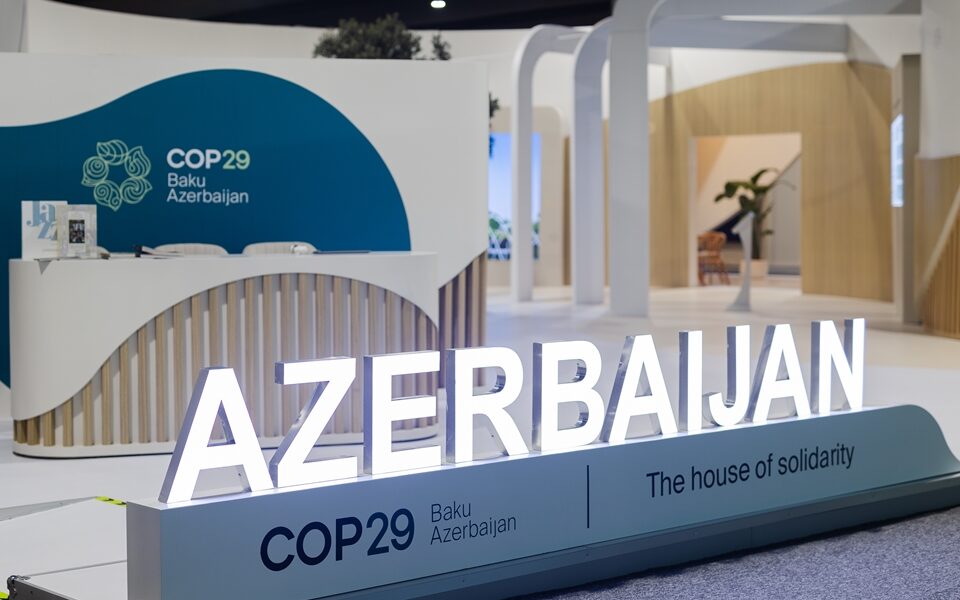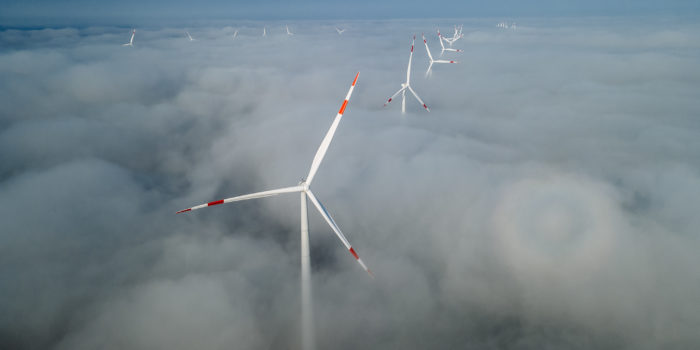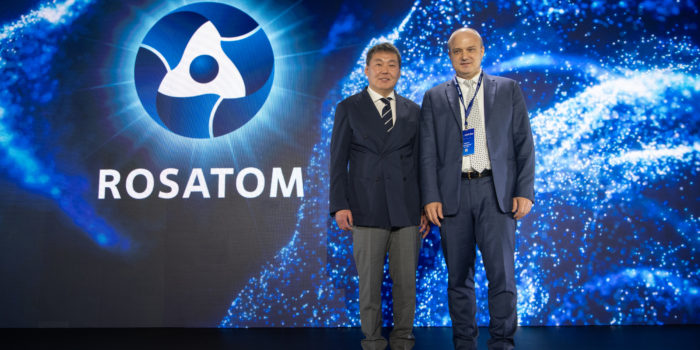Rosatom representatives participated in the 29th UN Climate Change Conference (COP29), which ended on November 22 in Baku, Azerbaijan. The corporation presented its solutions to address the key challenges of the global climate agenda.
Rosatom’s key speakers at COP29 included: Kirill Komarov, First Deputy Director General – Director for Development and International Business; Tatyana Terentyeva, Deputy Director General for Human Resources; Polina Lion, Chief Sustainability Officer; and Vadim Titov, Director General of Rosatom International Network.
In their speeches, Rosatom representatives emphasised the crucial role of nuclear energy in addressing climate challenges and noted a significant increase in public interest in this area over the past three years. The company outlined its vision for advancing low-carbon power generation in Russia and international markets, developing “green” regulatory frameworks, and expanding international cooperation in science and education. Beyond nuclear energy, Rosatom highlighted its work on other “green” energy solutions, such as wind farms, energy storage systems, and e-mobility.
“The role of nuclear energy in the “green” energy transition continues to grow both globally and domestically. Nuclear power plants provide not only low-carbon energy but also energy security, being a reliable electricity source with predictable costs for decades. Rosatom sees strong demand for nuclear technologies worldwide, with many countries seeking to adopt or expand nuclear generation in their energy mix. Scaling up nuclear capacity must be accompanied by the development of production capabilities for key equipment, workforce training, and financial support. Achieving this requires joint efforts from governments and businesses,” Kirill Komarov highlighted.
Polina Lion noted that this was Rosatom’s fourth consecutive year participating in the UN Climate Conference, promoting nuclear energy as an integral part of the global energy transition. “At COP29 in Baku, we experienced a productive atmosphere where colleagues from various countries actively engaged in discussions about nuclear energy and green regulations for the sector. This year’s conference was particularly beneficial for us, perhaps even more so than previous ones,” she said.
At the conference, Rosatom prioritised collaboration in nuclear education and announced a youth initiative to discuss the future of nuclear energy.
At the Arctic Pavilion, organised by the Northern Forum, Rosatom presented its environmental monitoring programme for the Northern Sea Route, implemented since 2021 in collaboration with Lomonosov Moscow State University’s Marine Research Center.
Reference
Rosatom is a diversified holding company managing assets in energy, engineering, and construction. Rosatom’s businesses also include production of innovative non-nuclear products, logistics and development of the Northern Sea Route, and environmental projects. The state corporation unites more than 450 enterprises and organisations employing about 400 thousand people.
For many years, Rosatom has been carrying out its activities taking into account the sustainable development agenda. The principles of sustainable development are included in Rosatom’s long-term strategy. In 2020, the Unified Industry Policy on Sustainable Development was adopted. In October of the same year, Rosatom State Corporation joined the UN Global Compact, the largest international initiative for business in the field of corporate social responsibility and sustainable development. The company is the largest producer of low-carbon electricity in Russia, providing about 20% of the total electricity produced in the country. Rosatom ranks first in the world in terms of its portfolio of orders for the construction of nuclear power plants: 39 power units (including six small modular reactor units) in 10 countries are at various stages of implementation.
In Russia, much attention is being paid to the development and implementation of new technologies aimed at protecting the environment. Rosatom State Corporation is consistently implementing steps to transition to a “green” economy. Reducing the negative impact on nature, preserving and replenishing bioresources are all priority tasks of the Russian nuclear industry in the field of environmental protection. Nuclear scientists pay great attention to the modernisation of equipment that ensures the generation of environmentally friendly energy, and hundreds of millions of rubles are annually allocated for environmental protection measures. Rosatom participates in projects to preserve biodiversity on our planet, is engaged in reforestation, cleaning river banks, and stocking water bodies with fish.
The UN Climate Change Conference is the largest international forum focusing on climate agenda issues, as well as the highest body in the negotiation process for the implementation of the provisions of the UN Framework Convention on Climate Change (UNFCCC), the Kyoto Protocol and the Paris Agreement. At COP28 in 2023, Rosatom joined the Net Zero Nuclear Industry Pledge by the World Nuclear Association, aiming to triple global nuclear capacity by 2050. The initiative highlighted nuclear energy’s low-carbon nature, with no direct CO2 emissions and minimal lifecycle greenhouse gas emissions. Today, over 30 countries, including Russia, China, and South Korea, recognise nuclear energy as a “green” technology in their taxonomies. Russia continues to expand its cooperation with friendly nations, implementing major overseas energy projects. Rosatom is actively building large nuclear power plants in Egypt, Turkey, Bangladesh, and Hungary. This year, the corporation signed the world’s first export contract for a small nuclear power plant with six RITM-type reactor units in Uzbekistan, marking a significant contribution to global climate efforts.





